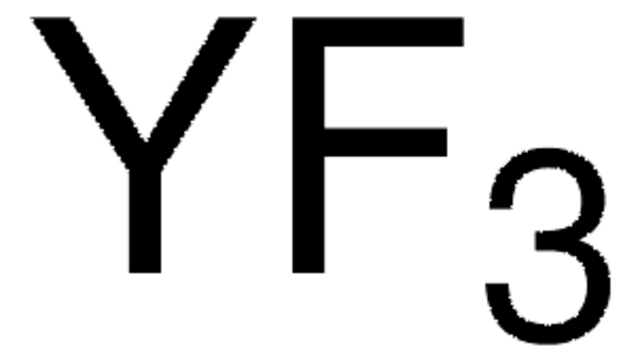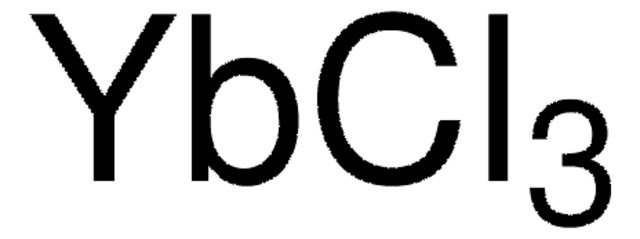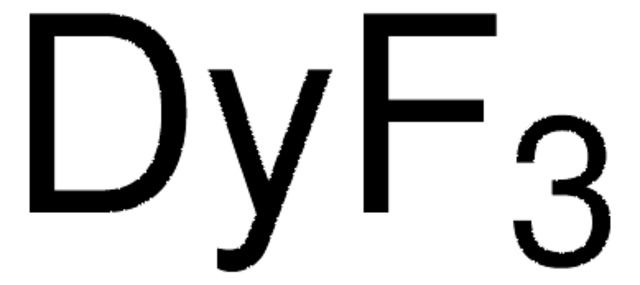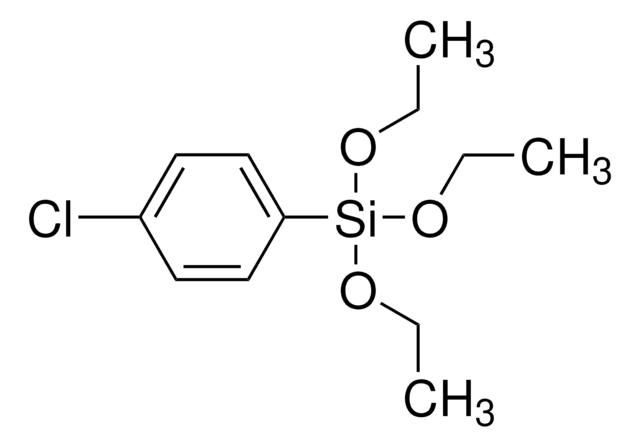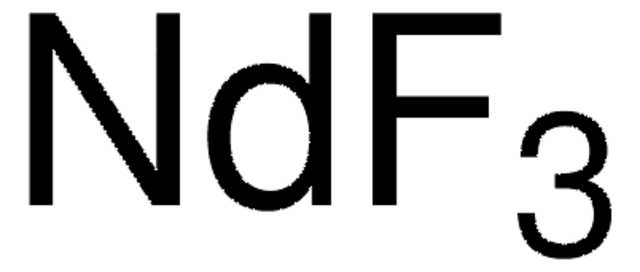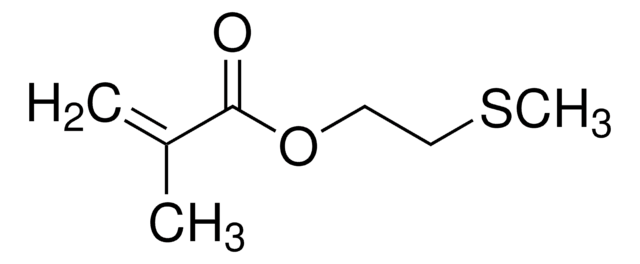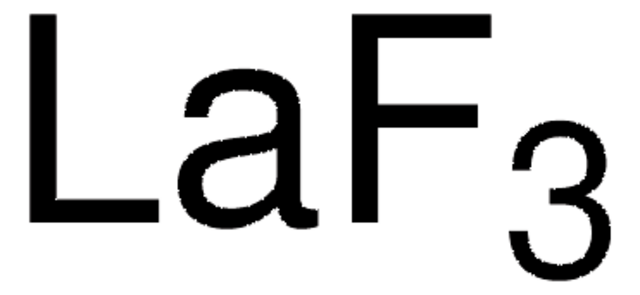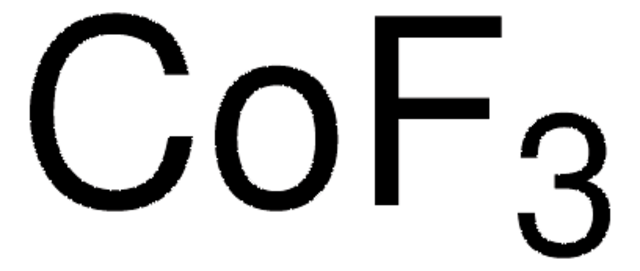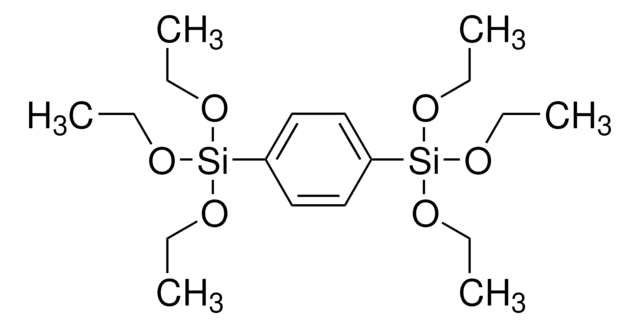432121
Ytterbium(III) fluoride
anhydrous, powder, 99.98% trace metals basis
Synonym(s):
Ytterbium trifluoride
About This Item
Recommended Products
grade
anhydrous
Quality Level
Assay
99.98% trace metals basis
form
powder
reaction suitability
reagent type: catalyst
core: ytterbium
impurities
≤250.0 ppm Trace Rare Earth Analysis
density
~8.20 g/mL at 25 °C (lit.)
SMILES string
F[Yb](F)F
InChI
1S/3FH.Yb/h3*1H;/q;;;+3/p-3
InChI key
XASAPYQVQBKMIN-UHFFFAOYSA-K
Looking for similar products? Visit Product Comparison Guide
Application
Storage Class Code
11 - Combustible Solids
WGK
WGK 3
Personal Protective Equipment
Regulatory Listings
Regulatory Listings are mainly provided for chemical products. Only limited information can be provided here for non-chemical products. No entry means none of the components are listed. It is the user’s obligation to ensure the safe and legal use of the product.
JAN Code
432121-10G:
432121-VAR:
432121-10G-PW:
432121-50G:
432121-BULK:
432121-50G-PW:
Choose from one of the most recent versions:
Already Own This Product?
Find documentation for the products that you have recently purchased in the Document Library.
Our team of scientists has experience in all areas of research including Life Science, Material Science, Chemical Synthesis, Chromatography, Analytical and many others.
Contact Technical Service